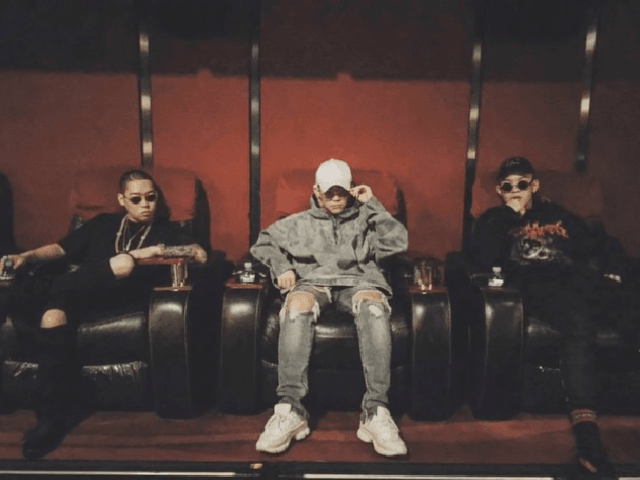China’s state media outlets have launched a new initiative to promote “rap with Chinese characteristics” after popular Chinese rapper PG One was forced to apologize this week for releasing songs that did not promote “core values” in the communist dictatorship.
PG One, who became nationally famous after appearing on the program The Rap of China, was forced to apologize for a 2015 song after government media highlighted its lyrics, which refer to cocaine use and non-consensual sexual interactions with a woman. The rapper blamed “black music” for his lyrics and promised to better adhere to the “core values” of communist China in the future.
The incident appears to have triggered a debate within the state-run newspaper Global Times, which published an article promoting “patriotic” rap music on Monday, but followed it up with an opinion piece concluding that hip-hop cannot flourish in China because it is a music born of oppression, and Chinese communists are not oppressed. The “patriotic” rap group featured in the positive article, CD Rev, became famous for a propaganda song called “This Is China” and have also published songs that include profanity and racist, misogynistic lyrics. Unlike PG One, however, CD Rev’s racism is reserved for white people, and their misogyny for Taiwanese president Tsai Ing-wen.
“China hopes to transform local hip-hop into a positive influence but will punish those who cross the line,” the Global Times reported Monday. The article claims that most Chinese “applauded” the Communist Party banning dozens of rap songs it considered detrimental to the communist agenda in 2015 because Chinese people see “hip-hop culture” as “foreign and even inferior to them.” All is not lost, however, according to the newspaper, because of the rapping communists in CD Rev, who themselves took to social media to criticize PG One.
One member of CD Rev, “Chuckie,” wrote on China’s Weibo social media site, “The freedom of music should stand on morality and laws.”
PG One became the target of Communist Party criticism last week, when the state outlet Xinhua published a 2015 song called “Christmas Eve.” PG One was a star in and ultimately champion of The Rap of China, which concluded in September 2017, and many of his newfound fans were not aware of his previous work.
The song in question includes lyrics such as “sleeping in the day, shouting at night, pure white powder walking on the board” and “a shameless bitch, with restless hands.”
“I was deeply influenced by Black music in the early days when I was exposed to hip-hop culture, and I didn’t have a correct understanding of core values of hip-hop culture,” PG One’s apology, posted on Weibo, read.
The Global Times promotes CD Rev as a proper communist alternative, citing one song in particular, the English-language “Force of Red,” as exhibiting “direct and plain feelings toward the country” that match the Communist Party’s agenda. That song, however, features even more vulgar lyrics than the song that has launched a campaign against PG One.
“Fuck anybody trying to split up PRC,” the rappers shout in their song. “Fuck DPP,” they add, referring to the anti-communist Democratic Progressive Party of Taiwan.
“Fuck Tsai Ing-wen,” it continues, “Y’all bitches ain’t ready for this shit.”
The song goes on to declare, “Taiwan ain’t a country, bitch—at most a county … fuck that, the bitch Tsai Ing-wen.” It also refers to international journalists as “punk ass white trash fuckers.”
Despite promoting this song on Monday, the Global Times ran a column on Tuesday condemning all rap music.
“No one can transplant a cactus to Siberia or move polar bears to the equator,” the column argues. “In this case, the living environment matters. Without a native culture for hip-hop, the cultural form can scarcely blossom in China.”
That “native culture,” the piece argues, is the alleged suffering of all black people in the United States. “Hip-hop was born in the African-American community of the U.S.,” the piece notes. “Although slavery ended with the nation’s Civil War, people of color there have still struggled with poverty, racism and gang violence for quite some time.”
“When hip-hop landed in China, hip-hop skipped the hardship part to become a commercial product,” the piece laments. As Chinese people do not endure hardships, the state-run outlet claims, they cannot produce quality hip-hop.
The piece does not note that Chinese citizens have no religious freedom, can face prison sentences for expressing improper opinions, and that the Chinese government’s push to limit coal emissions has resulted in peasants far from urban energy sources being “frozen to death.”

COMMENTS
Please let us know if you're having issues with commenting.